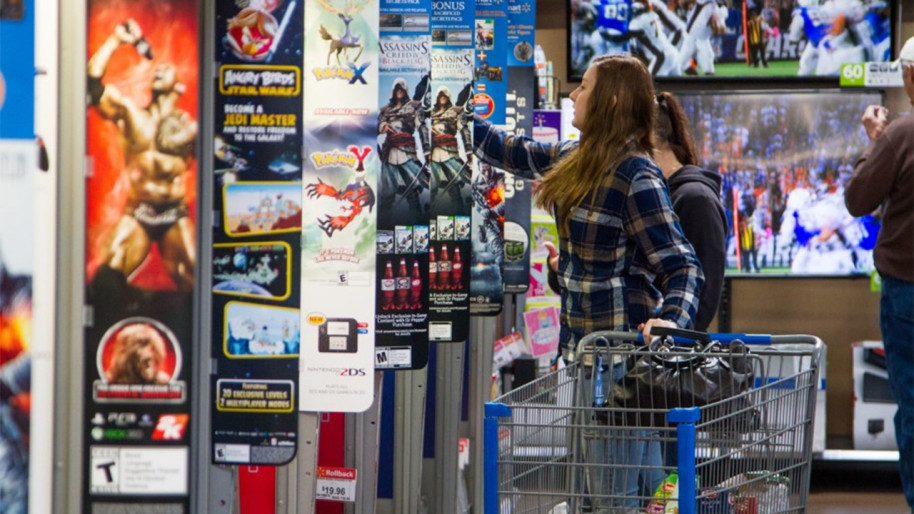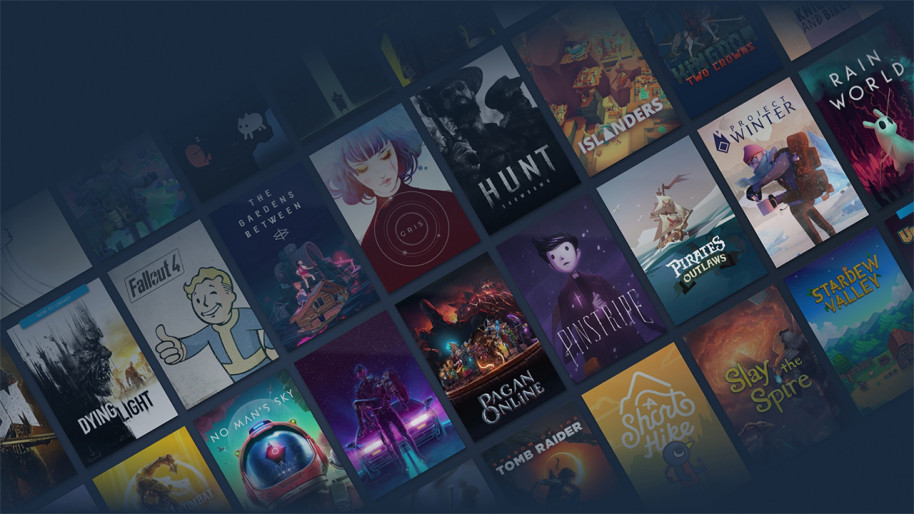The market for second hand games is almost as old as the video game industry itself. Today, more than ever, there is talk of its end. The arrival of digital-only consoles, along with subscription services, fuel the debate about the end of this commercial practice. But what is true about it? Below we analyze the past, present and future of the used games market.
For several years, entering a video game store no longer implies only finding the typical shelves of sealed novelties, but running into large containers of video games that sometimes seem to engulf the establishment itself. One word is usually read in these games: pre-owned , and there is always a buyer or curious looking among the myriad of titles, both those that came out the previous week, and those that have been on sale for months or years.
You sure know what I’m talking about. The second-hand video game market is one of those uncomfortable realities that not everyone likes to mention. However, it has always been there. In fact, you will be surprised to know that it is not something residual, but very important. So much so that it explains the fall of such reputable chains as the American Gamestop. Developers of the stature of Lionhead went so far as to say that sales within this market are more troublesome than fearsome piracy.
Why is it that so many users turn to second hand? Is it because video games are expensive? What future awaits this type of practice? The increasingly accelerated implementation of the digital format and the gradual establishment of streaming platforms are causing a paradigm shift. The physical format is weakened, but does that mean that the second hand will disappear? I’ll give you a sneak peek: there is nothing definitive. Now you are obliged to continue reading. It is an interesting subject, with many questions, which you will understand much better in a few minutes. I promise you.
Second-hand games, an industry bad?

It’s pretty easy to understand why the second-hand video game market is worth billions of dollars. Imagine buying a game, passing it to yourself in a few days, and selling it in the same store to recoup part of the investment. This store has done double business: it sold the game to you for the first time (with a profit margin) and then probably sold it again to someone else (with even greater profits). You do not believe it? A fact: a few years ago, second-hand games accounted for 25% of Gamestop’s sales, but they accounted for up to 45% of its profits. The profitability is brutal.
This form of business has flourished because the number of games used is enormous. The Walmart hypermarket chain estimates that there are billions of these video games that are gathering dust: 8 out of 10 video games are on our shelves. This data explains the existence of a second-hand market that has enjoyed constant hegemony , due to the historical prevalence of the physical market. Unlike in the music or movie industry, the digital format in video games has not yet become cheaper enough to retire optical discs and cartridges.
This is important to consider, because the price of second-hand games gives a powerful clue as to how much users are willing to spend. An interesting study from New York University concludes that the price of second-hand games is falling faster than that of new games . Being specific, the news loses between 23-58% of its value after the first week. Hence, a common practice has been to buy a novelty game, squeeze it, and sell it in a short time to recoup some of the money invested. This happens for a reason: the games are expensive, or so users think, who prefer to buy second-hand games.
There are not a few companies that consider that this type of market is evil. Are they really a drag on the industry? To give you an idea of this mentality, Reggie Fils-Aime , the former president of Nintendo of America, had the conviction in 2009 that people preferred to buy new products, and more so in the case of video games: ” Users want to find all the secrets of a Zelda, they are games with a long life. ” In that interview , he also commented that he did not predict a good future for this second-hand market, and that it would end up being like that of books, music or cinema: almost non-existent. Of course, he was wrong.
The second hand in video games is essential to understand what has happened in the last decade. So much so that the researchers Ishigara and Ching show that if the prices of the novelties are maintained, but the used games market disappears, the profits in sales would fall by 10%. And what would happen if prices fell? Even more surprising: profits would go up almost 20% . This gives cause to think … because precisely what is intended now is to raise prices.
The second hand in video games is essential to understand what has happened in the last decade
It seems illogical, right? A few years ago a vicious circle was entered, so that the stronger the second-hand market became, the more the prices of novelties rose . After all, if people waited a bit to buy a used game at a lower price, they stopped selling a new copy, and this made the products more expensive to assume the “losses”. How to fight this? Difficult. Some companies used their commercial ingenuity. For example, the boxes contained a one-time code with special content, something that somewhat discouraged second-hand use.
You can see, therefore, that the second hand is a headache for developers. So important, that it explains why so many times it has been said that single-player experiences are doomed to disappear. David Braven , co-creator of Elite, states emphatically that used games have ended with these types of titles: “I do not want to say that it is wrong to sell something you have played, but nowadays people buy these types of video games to finish them and return them “. In this way, stores think twice about selling beyond launch, since they trust to acquire more money through second hand.
The second hand has forced some stores to lower prices to compete
Many problems, but also some other benefits. The second hand has motivated that stores have been forced, in some cases, to lower prices to compete . Similarly, it is proven that a large part of the money that users obtain from selling their used games ( approximately 70% according to Gamestop ) is invested in acquiring others . Therefore, it is money that does not come out of this peculiar ecosystem, redounding to the benefit of both players and producers. Then there are cases and cases. For example, GTA V is a game that has not dropped in price in many years, and that is due – among others – to the fact that the impact of the second hand was not as great as in other cases.
Goodbye physical format, hello second hand digital?

However, perhaps video game companies shouldn’t worry too much. At least not as much as in the past. It is an incontestable reality that there is a debacle in the second-hand market , something that has probably come to finish off the coronavirus crisis. If we look at the data from recent years , in the UK it fell by 30% in 2018, while in the US it did so by more than 20%.
It seems hopeless to think that the sale of used games in physical format is in free fall. There are many reasons. In the territory of PCs, services like Steam have ended up convincing us of the benefits of digital. It is also crucial to understand how subscription services are impacting, including streaming gaming, which will gain even more importance in the coming years. Coupled with this, player habits are being transformed , with many players spending much more time on a single game. And one last piece of information, the definitive one: we are in a context where digital sales already account for 50% of the total . Everything indicates that those large used game containers will begin to disappear. The newsPS5 Digital and Xbox Series S already assume a scenario that seems to be imposed for years to come. The physical format will last this generation, but it would be a surprise if it maintained the state of health of yesteryear. Stores that previously profited from second-hand sales will need to redirect their business strategy to other assets , such as PC hardware and accessories, collector’s editions, merchandising, etc.
However, does this mean the end of the second hand? Perhaps the answer is yes if you consider that it is only possible to sell used games physically. But what if you could sell the games from your digital library? The first time I read this, it seemed impossible to me, almost ridiculous, but it is an existing and important debate today. To put you in context, Steam was brought to justice for its terms of service, in which it prohibits the resale of games purchased on its platform. This, according to a recent sentence signed in France , goes against European law. The logic is simple: when you buy a game, possession passes to you, so you should be able to sell it on the second hand market if you want. The trick is that Steam gets around this situation by saying in its terms that they offer a “subscription service”, which does not imply ownership.
Steam was brought to justice for its terms of service, which prohibit reselling games
Steam is not alone in this. The PlayStation, Xbox, Nintendo or Epic Games digital stores also rely on these types of conditions to avoid the second-hand market in digital video games. In a certain sense, and as I have mentioned before, companies usually associate this market with economic losses. But all is not lost, or at least there are people who think so. A digital second-hand market could move billions of dollars locked in digital platforms by number of user accounts.
For example, do you know Robot Cache ? It is a brainchild of Brian Fargo ( Wasteland ) that basically allows you to buy and sell digital video games. It is intended to compete with Steam and is based on a new cryptocurrency: IRON, which can be mined and used to buy (real money can also be used). It is still in beta, and its own creators consider it an experiment, but it is a demonstration that the second digital hand in video games is possible. If you want another, Gamestop already showed interest in 2015 in the sale of used digital games.
Of course, this digital market brings with it an infinity of difficulties and unknowns, mainly related to the usual: how willing are large companies to have this type of proposal go ahead. That is the great stumbling block. Therefore, we can only wait for how the issue evolves, but be very clear about something: this generation is going to be very important to see where the market is going. What do you think about this whole thing? Are you buyers and / or sellers of second-hand games? How do you expect the future to be and how would its hypothetical disappearance affect you?
